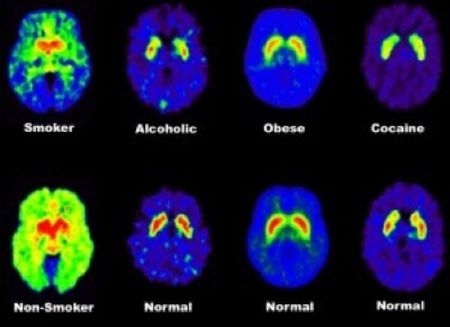Addiction is a behavioural disorder with psychological, genetic, and psychosocial aspects. Addiction is characterised by tolerance, the need to engage more and more in the addictive behaviour and withdrawal symptoms. Addicts cannot control their addictive behaviour even despite harmful consequences. Learn about addiction.
Defining addiction
Definition
Addiction is a disease that can be determined by inheritance or environment or both. Addiction has been typically classified as physical dependence or psychological dependence. Some drugs can clearly induce a physical dependence and an abstinence syndrome.
However, tolerance and withdrawal also results from addictive behaviours, such as gambling, that do not require ingesting psychoactive substances.
Different addictions
The range of addiction is wide from substance additions, for example to alcohol, benzodiazepines, caffeine, nicotine or cannabis, to behavioural addictions, for example to gambling, gaming, eating, sex, exercise or shopping.
Symptoms
Medical symptoms of addiction include:
- Tolerance:The use or the need to engage in the addictive behaviour is increased to obtain a similar effect.
- Withdrawal: Removing the substance or stopping the activity results in physical or psychological symptoms, such as tremour, seizure, or depression.
- Difficulty in cutting down or controlling the addictive behaviour.
- Time is spent in obtaining, using, or recovering from the effects of the addiction.
- Important social and occupational roles are sacrificed because of the addiction.
Consequences of addiction
Addicts will continue engaging in the behavioural addiction or using substances in spite of adverse consequences and will lose control.
Effects
Depending on the addiction, the effects will range from mild, such as feeling hangover or being late to work, to severe, such as being homeless.
Usually, the addiction grows more serious over time. The brain of addicted people has been modified in such a way that taking the drug has become indispensable. Individuals who suffer from addiction often have related health problems.
Drug abuse
Drug abuse can also cause serious health problems for others, including negative effects of prenatal drug exposure on infants and children or increased spread of infectious diseases. Drug abuse may trigger or exacerbate mental disorders. Other consequences include problems with relationships, money, and work.
Detoxification
Detoxification is the first step in recovering from addiction, followed by treatment and relapse prevention. Medication and behavioural therapy are important parts of the addiction treatment.
Final word
In conclusion, addiction is a biological, psychological and social condition which affects not only the addict, but the addict’s family, friends, co-workers and society at large with more or less severe consequences. Addiction treatment centres or programs can help addicts to change their behaviours.



